calsfoundation@cals.org
John Bush (1856–1916)
John Edward Bush, a chairman of the Republican Party in Arkansas, rose from poverty to national prominence when he co-founded the Mosaic Templars of America (MTA), an African-American fraternal organization of international scope, spanning twenty-six states and six foreign countries from the 1880s until the 1930s. Headquartered in Little Rock (Pulaski County), MTA became one of the largest and most successful black-owned business enterprises in the nation and the world; it included an insurance company, a building and loan association, a hospital, a business college, a publishing house, and a nursing school. Living most of his early life in the downtown 9th Street district of Little Rock, Bush was widely acknowledged as one of the wealthiest black men in Arkansas and a progenitor of the economic development and progress of black American entrepreneurs.
John Bush was born a slave on November 14, 1856, in Moscow, Tennessee. In 1862, Bush and his mother and sister were brought to Arkansas by their owner, who was trying to stay ahead of Union troops. His mother was Mary E. Cobb, and his sister was Mollie Bush Henderson, mother of Arkansas’s first black jeweler, J. E. Henderson. Bush and his family were free at the end of the Civil War, but his mother died shortly after their arrival in Little Rock. He often had to sleep under bridges or in stables or deserted houses. He frequently lived off the kindness of strangers but performed odd jobs suited to children, such as running errands, watering stock, or washing dishes to earn his keep. One day, while Bush was throwing rocks, a man named Colonel R. C. Lacy saw him and carried him by force to school. Bush liked school and studied late at night as he was often unable to attend during the day.
In order to finance his education, Bush worked during the summers in a brickyard as a brick molder. In 1875, Bush worked as a postal clerk for the Railway Mail Service and became the first black person to be recommended for the chief clerkship of the division. Bush graduated with honors from the Capital Hill City School of Little Rock in 1876 and served as its principal for two years immediately following graduation.
In 1879, Bush married Cora Winfrey of Little Rock, daughter of prominent black businessman-contractor Solomon Winfrey. Out of seven births, only four children survived: Stella E. Bush, John E. Bush Jr., Chester E. Bush, and Aldridge E. Bush.
The founding of the Mosaic Templars in 1883 launched Bush’s business career and won him favor with other esteemed black leaders of the day, including Booker T. Washington. The two became fast friends and supported each other’s business endeavors: Bush served as an executive committee member of Washington’s National Negro Business League, and Washington was a dues-paying member of the Mosaic Templars. Washington also dedicated the Mosaic Templars headquarters building in 1913.
Bush is often viewed as the reason for the MTA’s success due in part to his reputed ability to judge character. A man who could be both stern and kind, he was able to surround himself with talented people who served as officers of the organization, such as his sons Chester and Aldridge, lawyer Scipio Jones, educator Joseph Carter Corbin, and educator and publisher J. H. McConico.
In 1882, Bush was nominated by the Greenback Party for the office of county clerk of Pulaski County but declined the nomination out of loyalty to the Republican Party. President William McKinley appointed Bush as the receiver of the U.S. Land Office at Little Rock in 1898. He was subsequently reappointed for four additional terms by Presidents Theodore Roosevelt and William Howard Taft.
Bush died on December 11,1916. After Bush’s death, his son Chester succeeded him as the national grand secretary of the Mosaic Templars of America, while Aldridge served as secretary and treasurer of its monument department.
For additional information:
Bush, A. E., and P. L. Dorman, eds. History of the Mosaic Templars of America: Its Founders and Officials. Little Rock: Central Printing Co., 1924. Online at http://www.mosaictemplarspreservation.org/history_mosaic/history.pdf (accessed February 12, 2021).
Bush, John E., IV. “Interview with John E. Bush IV.” 2007. Audio at Butler Center for Arkansas Studies, Bobby L. Roberts Library of Arkansas History & Art, Central Arkansas Library System: John E. Bush IV Interview (accessed February 12, 2021).
Mosaic Templars Cultural Center. http://www.mosaictemplarspreservation.org/ (accessed February 12, 2021).
Smith, C. Calvin. “John E. Bush: The Politician and the Man, 1880–1916.” Arkansas Historical Quarterly 54 (Summer 1995): 115–133.
Williams, Nancy, ed. Arkansas Biography: A Collection of Notable Lives. Fayetteville: University of Arkansas Press, 2000.
Ashan R. Hampton
Little Rock, Arkansas
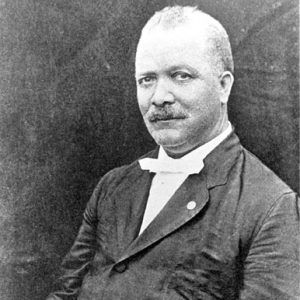 John Bush
John Bush 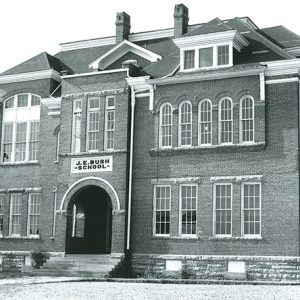 J. E. Bush School
J. E. Bush School  John Bush
John Bush 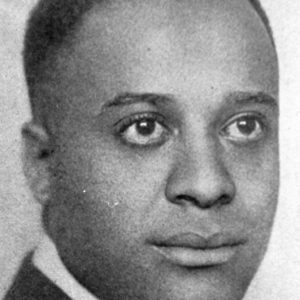 A. E. Bush
A. E. Bush 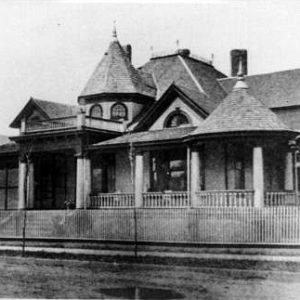 Lena Jordan Hospital
Lena Jordan Hospital 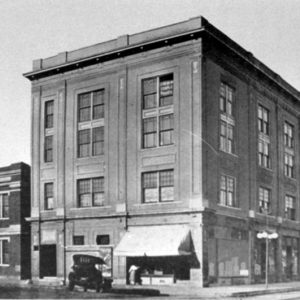 Mosaic Templars Headquarters
Mosaic Templars Headquarters 



Comments
No comments on this entry yet.